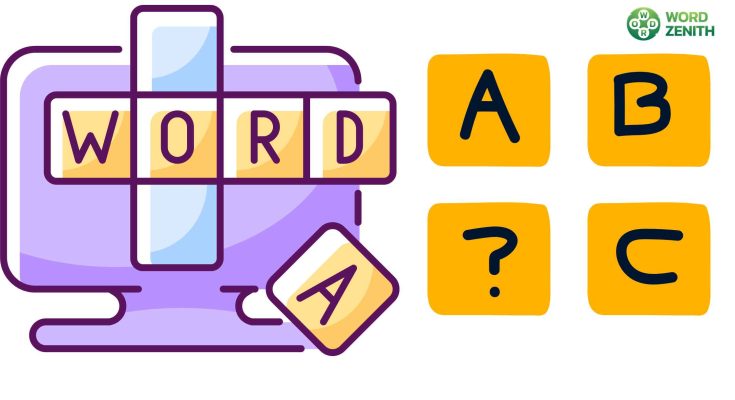In the domain of intellectual growth and mental sharpness, language plays a vital role in nurturing critical thinking as well as problem-solving skills. Nevertheless, these are not just limited to cognitive development alone but also contribute significantly towards emotional intelligence (EI). This paper seeks to explore how word games intersect with the development of emotional intelligence.
Understanding Emotional Intelligence
Before looking into the relationship between word games and emotional intelligence, it is important first to understand what emotional intelligence means. Coined by Peter Salovey and John Mayer but popularized by Daniel Goleman, emotional intelligence refers to one’s ability or capacity for recognizing, understanding, managing and expressing emotions effectively both within oneself and others around him/her. It involves several components which are:
Components of Emotional Intelligence
- Self-Awareness: The knowledge or recognition about one’s own emotions, strengths, weaknesses, values, likes, dislikes etc.
- Self-Regulation: Being able to control, regulate, manage one’s feelings, thoughts, actions better so that they can fit into different situations appropriately without causing harm to themselves or others.
- Social Awareness: The skill of being able to perceive other people’s feelings needs interest, concern etc., also known as empathy.
- Relationship Management: Having good interpersonal skills, knowing how to interact, relate and communicate well with others especially when there are differences of opinion, confliction interest etc. this may involve diplomacy negotiation compromise even sacrifice if need be though not always necessary depending on circumstances surrounding such relationships.
Emotional intelligence is a strong predictor of success in life across various domains including personal relationships, academic performance, career development among many more aspects related to human beings’ overall wellbeing.
The Role Played By Word Games
Creating Self-Awareness
Word games like crossword puzzles, anagrams or word association challenges require much mental effort than any other linguistic activities could demand from someone. During these language-engaging tasks individuals become more conscious about their thinking processes including patterns of thought, problem-solving strategies used and their competence in using different words appropriately. Such awareness might not only be limited within cognitive domain but also extended towards understanding oneself emotionally through self-reflection upon feelings experienced at different times while playing such games.
Encouraging Self-Control
Word games usually involve intricate elements that may frustrate players or require them to keep going despite setbacks encountered. For instance, one may need great patience together with resilience plus ability to regulate emotional reactions towards difficulties when trying out hard crosswords or figuring out elusive anagrams successfully over many attempts made over some period. Thus continuous involvement into word puzzles could assist people in acquiring more emotional strength to cope with adversities across various life settings as well as improve willpower necessary for enduring negative situations until they change positively.
Promoting Social Sensitivity
Although most word games are played alone by individuals against themselves, there are still others which can be enjoyed either collaboratively or competitively among peers or even strangers met during such events like tournaments organized around playing these kinds of mind-boggling puzzles. As a result, people get chances to observe each other’s behavior closely while engaged in joint efforts aimed at solving particular linguistic challenges presented by game organizers. This kind interaction enhances ones’ empathic abilities thereby facilitating better understanding others’ feelings within game context.
Boosting Relationship Building Skills
Communication forms the basis of successful relationships whether personal professional Word plays an essential role in enhancing communication skills such as expressing thoughts verbally, listening attentively negotiating for win-win agreements etcetera.. The teamwork involved in shared gameplay requires players to articulate their ideas clearly and appreciate alternative viewpoints put forward by teammates working together towards achieving common objectives thus enabling them develop effective conflict resolution abilities which can later transfer to real life situations involving higher stakes.
Psychological Processes Involved
Cognitive Flexibility
Cognitive flexibility is required for word games. Cognitive agility is the capacity to think and solve problems in different ways and switch between them as necessary. This cognitive adaptability does not only affect language but also has an impact on emotional challenges, approach and navigation.
Pattern Recognition
Recognizing patterns, identifying word relations, connecting ideas based on limited information are some of the skills that word games demand from players. Pattern recognition helps develop one’s thinking ability while at the same time enhancing emotional intelligence. Through recognizing language and behavioral patterns people become more sensitive to subtle human feelings thereby making social interactions more sophisticated and empathetic.
Reward Pathways in Brain
Satisfaction achieved from solving riddles or finding hidden words while playing word puzzles can be explained as a result of the brain activating dopamine reward systems which strengthen learning and motivation. Positive reinforcements like these may eventually contribute towards building emotional intelligence by associating positive emotions with overcoming difficulties or achieving objectives thus fostering optimism and resilience.
Practical Implications & Applications
Educational Settings
Introducing various types of word games into educational programs serve several purposes at once: they stimulate thinking skills both logically and creatively, help develop social-emotional competences alongside linguistic ones, provide opportunities for peer-interaction through collaboration as well competition, create dynamic learning environments where all aspects of personal growth can flourish.
Read More: The Influence of Word Games on Decision-Making and Strategic Planning Skills
Therapeutic Interventions
Word games present themselves as useful tools within mental health interventions especially when dealing with mood disorders such as depression, anxiety or stress related conditions. The structured nature of these activities offers a safe space where individuals can practice emotion regulation techniques like cognitive restructuring, mindfulness or problem-solving skills. Furthermore, accomplishing puzzles successfully gives people a sense of achievement which might boost their self-esteem leading to higher levels of resilience besides supplementing traditional therapeutic methods.
Professional Development
In terms of professional development training at work places there exists great potential hidden behind simple forms like word-games because it allows employees to improve communication, teamwork, conflict resolution etcetera. Incorporating this kind of exercises into corporate training programs helps create continuous learning cultures coupled with socializing around shared values while still considering individual differences among staff members’ needs. Moreover, cognitive demands posed by various puzzles spark mental agility thus boosting adaptive thinking capacities necessary for success across different career paths.
Read More: The Therapeutic Potential of Word Games for Mental Health
Conclusion
Word games are not only meant for fun or mental exercise, they can also help us become emotionally intelligent beings. When we engage in linguistic challenges that require self-awareness, self-regulation, social awareness and relationship management we do much more than just sharpen our brains, we develop important emotional skills too! Whether it’s improving communication abilities or building empathy resilience, word-games offer flexible yet enjoyable routes towards holistic personal growth and well-being. Indeed as the connection between cognition and emotion becomes clearer through playthings like these there is no doubt left about their power to transform minds as well as hearts.




